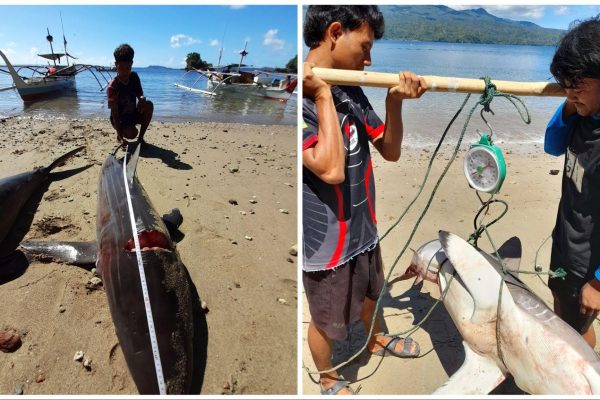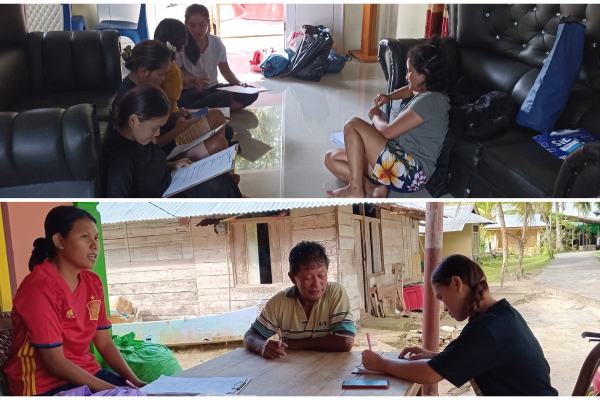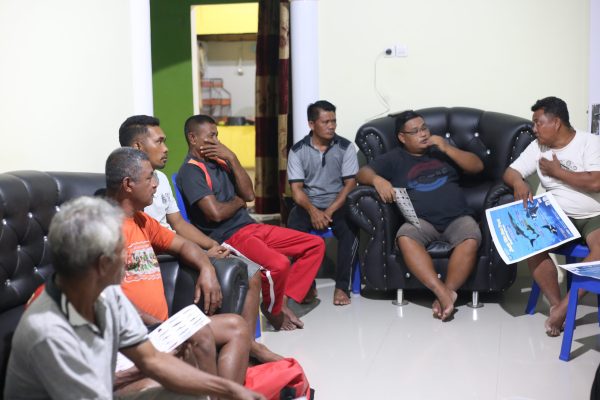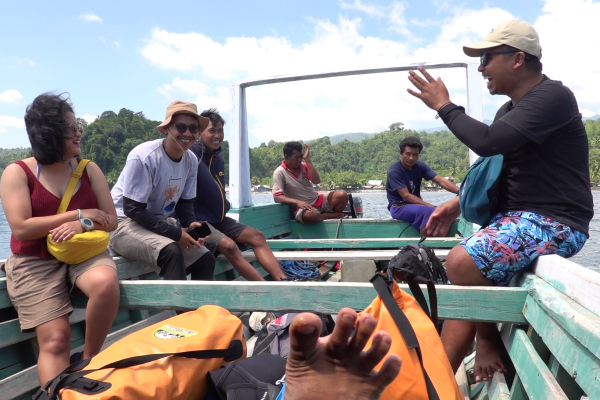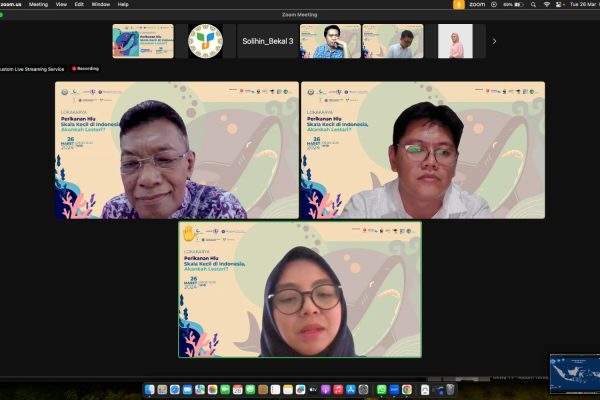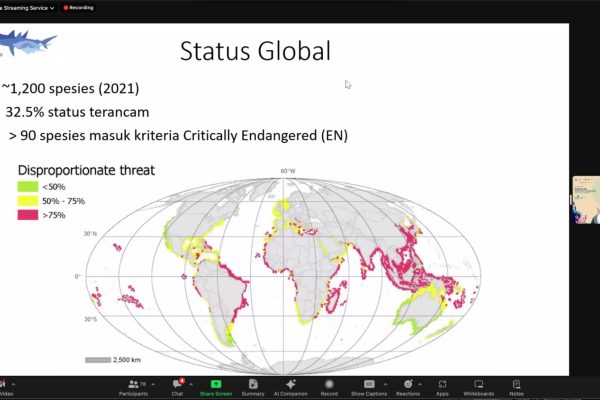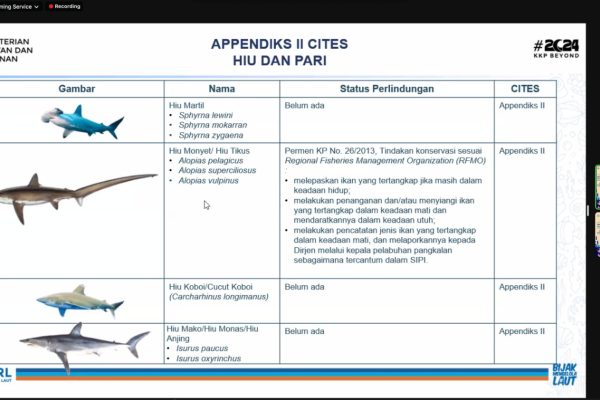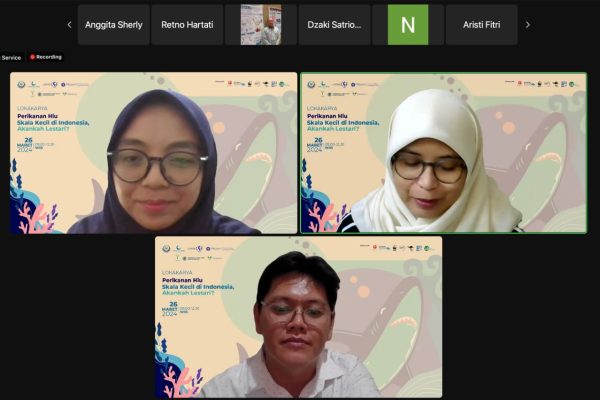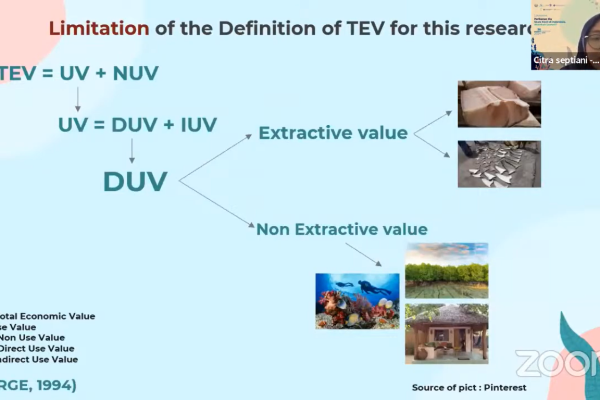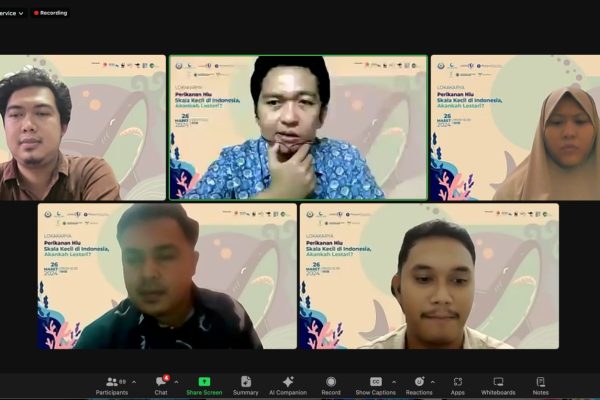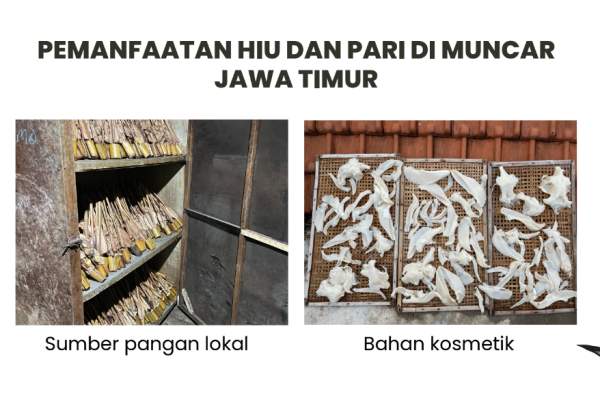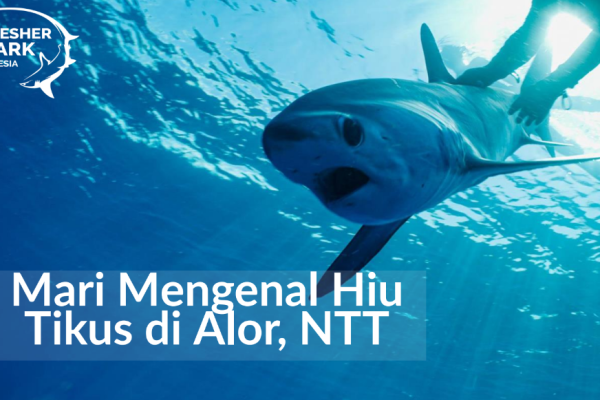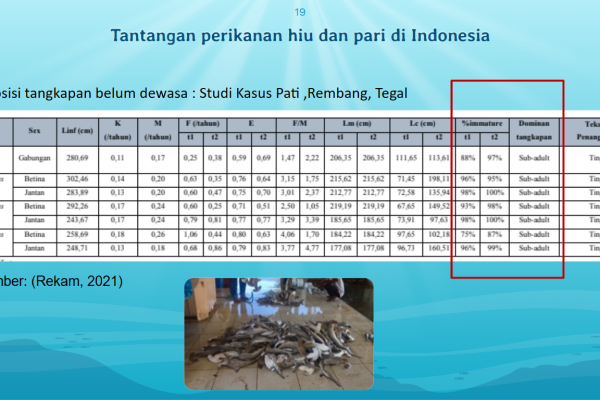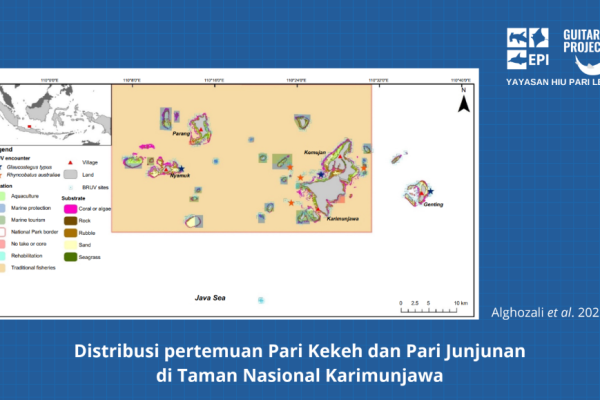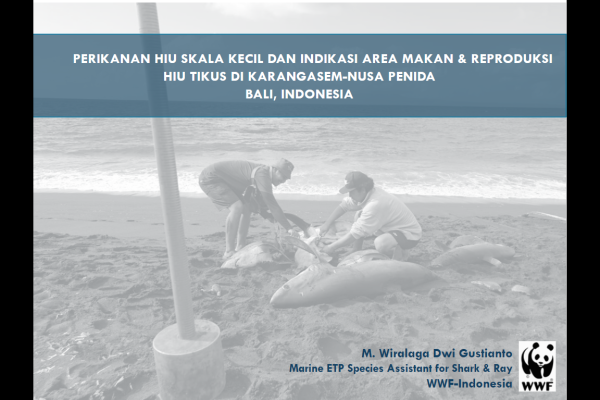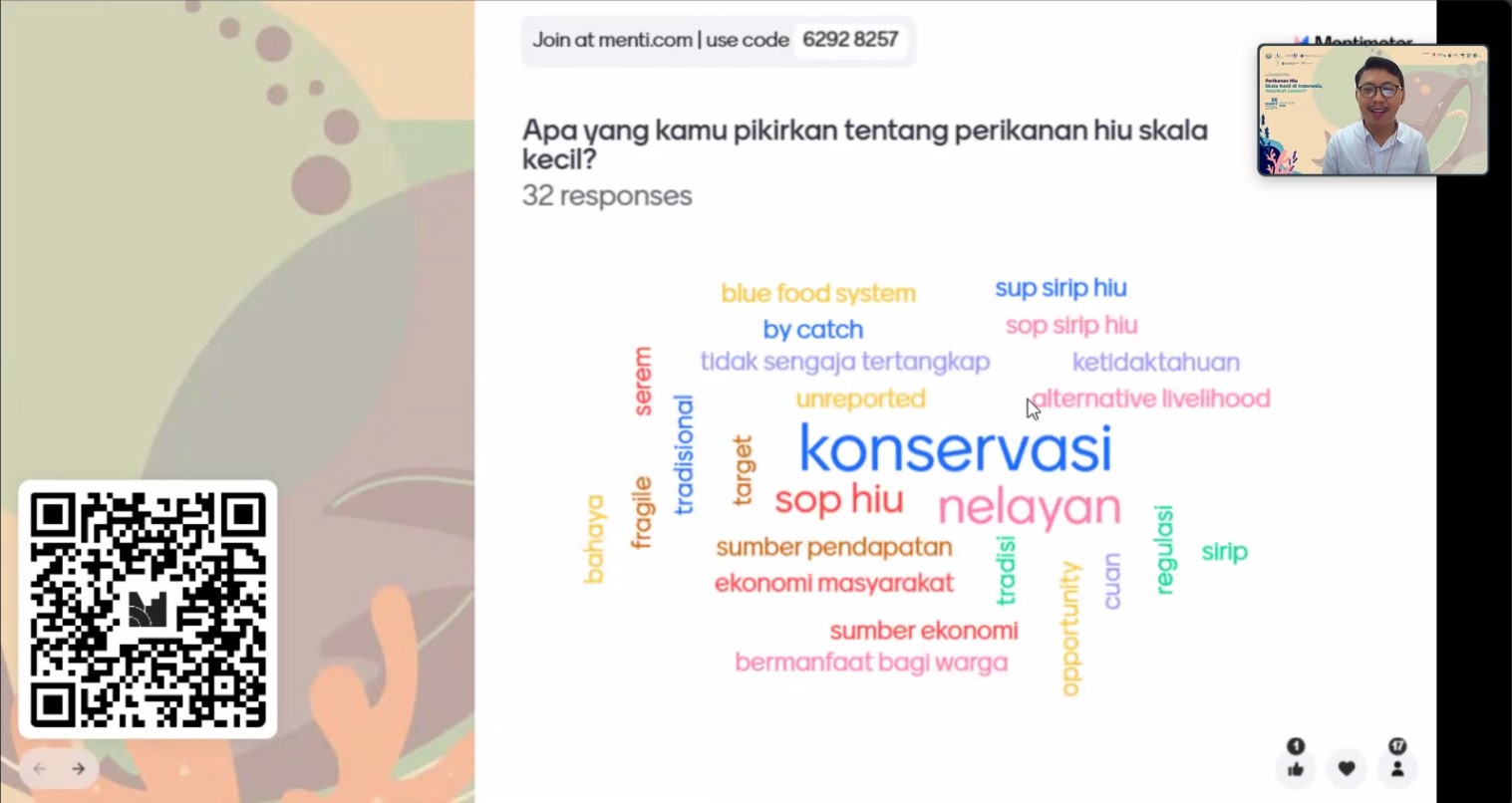
Tuesday, March 26, 2024 – Discussing small-scale shark fisheries in Indonesia is a never-ending topic. Sharks play a crucial role in the ecosystem from an ecological perspective and become a source of livelihood for many coastal communities. Unfortunately, generalization of negative stigma has become a challenge for fishermen whose alternative livelihoods are limited. This situation exacerbated by the lack of scientific data related to biological and ecological aspects of sharks or socio-economic factors, which are crucial in determining policy direction. These conditions form the foundation for YAPEKA’s initiative to organize a workshop titled “Small-scale shark fisheries in Indonesia, will it be sustainable?” in collaboration with the Ministry of Marine and Fisheries (KKP), the Faculty of Fisheries and Marine Sciences (FPIK) at IPB, and the Faculty of Biology at UGM, with full support from the National Research and Innovation Agency (BRIN), the Coastal and Marine Resource Management Agency (BPSPL) Makassar, WWF Indonesia, Thresher Shark Indonesia, Mobula Project Indonesia, Elasmobranch Project Indonesia, and the Rekam Nusantara Foundation.
This workshop is part of a series of discussions and dissemination activities related to small-scale shark fisheries research in Batuwingkung Village, Sangihe Regency, conducted by YAPEKA over the past year, funded by the Save Our Seas Foundation (SOSF), the Conservation Strategy Fund Indonesia (CSF), and supported by prototype team of the bekal pemimpin tiga from United in Diversity (UID). The research was led by Citra Septiani, M.Res (YAPEKA), Elisabeth Astari, S.Si (YAPEKA), and Akbar Reza, M.Sc, an expert in Ecology and staff at the Ecology and Conservation Laboratory, Faculty of Biology, UGM. This research and workshop also represent a form of collaboration between YAPEKA and the Faculty of Biology at UGM. Additionally, the research was assisted by YAPEKA Research Assistants, Abiomi Ciptoning Bentali, S.Pi (UNPAD), and Mega Senja Bramh, S.Pi (UB).
The main session, moderated by Heri (Independent Fisheries Consultant/Leader Preparation), featured Prof. Dr. Ir. Fredinan Yulianda (FPIK IPB University) emphasizing the importance of adaptive management in his presentation on “Conservation challenges and management status”. Similarly, Dr. Fahmi (BRIN) discussed the “Global conservation status of shark species ” highlighting the need for effective use of energy to regulate shark fisheries, for example, by strictly monitoring businesses. Representing BPSPL Makassar, Permana Yudiarso, S.T., M.T. stressed ongoing regulations such as quotas, size regulations, reporting, and licensing updates related to species included in Appendix II in his presentation on “Conservation implementation of shark resources in Sangihe Islands Regency”, including hopes for collaboration among various parties. Citra Septiani, M.Res (YAPEKA) then presented data related to the ecological and socio-economic aspects of shark fisheries in Batuwingkung, Sangihe, including potential future development alternatives to other business models. Dr. Alin Halimatussadiah (Head of the Environmental Economic Research Study Group FEB UI) responded to the data by discussing the process of livelihood switching for fishermen in an economic context involving a long and collaborative process.

